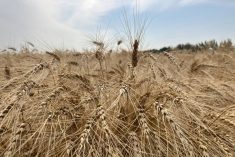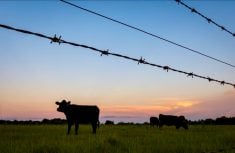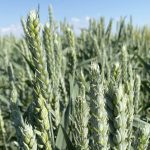Reuters – Swiss agrichemicals and seeds group Syngenta on Thursday logged slightly slower – albeit still robust – growth in sales and core earnings for the third quarter.
The Chinese-owned company, which plans to list within the next few months, said sales jumped 20 per cent to $7.9 billion in the three months to the end of September, compared to a 24 per cent increase during the second quarter.
Earnings before interest, tax, depreciation and amortisation (EBITDA) increased by 24 per cent to $1 billion. In the second quarter earnings had increased by 39 per cent.
Read Also

U.S. grains: Soy hits four-month high on hopes for China trade deal
U.S. soybean futures jumped to their highest level in more than four months on Monday on hopes that China will resume buying American supplies after President Donald Trump said the countries were set to reach a trade deal during his trip to Asia this week.
The Basel-based company said it was still seeing strong demand, as farmers – buoyed by high prices for commodities – invested in crop protection products and new seeds.
Some farmers were also stocking up on products, while Syngenta’s modern agricultural platform business in China – where it gives training and advice – had almost doubled in size.
Still, Syngenta noted it was seeing an “increasingly challenging macroeconomic environment” while the continued strengthening of the dollar also weighed.
“Sales growth was attributable to a significant increase in sales across all business units, driven by robust grain prices, attractive farm economics and inventory builds across the value chain.
“Necessary price increases were implemented to help mitigate higher costs,” it added.
Syngenta, which competes with U.S. company Corteva CTVA.N and Germany’s BASF BASFn.DE and Bayer BAYGn.DE, was bought in 2017 for $43 billion by ChemChina, which was folded into Sinochem Holdings Corp 600500.SS last year.
The parent company plans to keep a majority stake after its $10 billion flotation, which is expected to value Syngenta at around $50 billion.
BASF on Wednesday said costs at its European sites must be cut to a “permanently” smaller size because of a triple burden of sluggish growth, high energy costs and over-regulation, with the German industrial giant’s boss throwing his weight behind a planned expansion in China.












